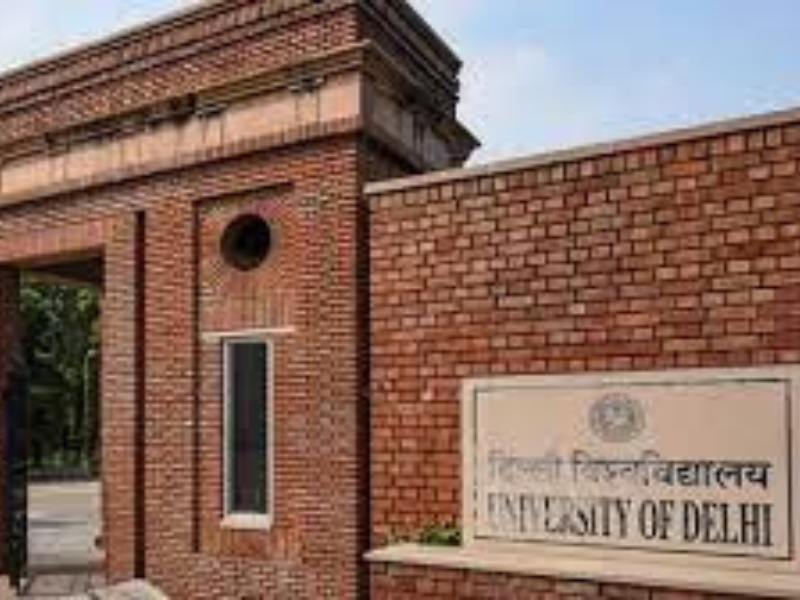Supernumerary seats for single girl child, scholarships for underprivileged students, and laptops for all are among the incentives being offered by the Delhi University for its three new BTech programmes this year, Vice Chancellor Yogesh Singh announced on June 14.
Addressing a press conference here, Singh said the new academic session of the university will begin on August 16.
The courses conducted by the Faculty of Technology are BTech Computer Science and Engineering, BTech Electronics and Communication Engineering, and BTech Electrical Engineering.
A total of 360 students will be admitted to the courses on the basis of their Joint Entrance Examination (Mains) score, Singh said, adding that a seat in each of the three programmes will be given to a single girl child.
“From this year, three new BTech programmes are being started wherein each of the 360 enrolled students will be reimbursed up to Rs 50,000 by the university on the purchase of a laptop,” the vice chancellor announced.
He said the University will also introduce a Financial Support Scheme (FSS) to extend the benefits of equity and access to quality education to economically weaker students seeking admission to BTech programmes.
“Candidates whose parents’ income is Rs 4 lakh or less will be given a 90 per cent fee waiver at the time of admission. Candidates whose parents’ income is more than Rs 4 lakh and less than Rs 8 lakh will get a 50 per cent fee waiver at the time of admission,” he said.
“One seat in each BTech programme will be offered to a single girl child as a supernumerary seat. The university has also included a supernumerary quota for orphan students this year,” he added.
As far as student strength in the first year is concerned, each course will have 120 seats. It means a total of 360 students will be admitted, he said.
Singh said the BTech programmes would be designed in such a manner that there would be a minimum of 50 per cent weightage given to the major subject area of study with a maximum of 65 per cent weightage.
The remaining weightage would be to the minor subject areas of study, he added.
According to the vice chancellor, students will have multiple exit options in line with the National Education Policy.
A student who has completed one year of study and earned the requisite credits would be awarded a certificate, those two years of study and requisite credits would be awarded a diploma, those with three years of study along with credits would be awarded an advanced diploma. Students who complete four years would be awarded a BTech degree, he said.
The departments of Computer Engineering, Electronics and Communication Engineering and Electrical Engineering are required to be situated on the North Campus of the university for logistic support and proximity to the majority of the faculties/departments on the campus, Singh said.
New programmes like a five-year LLB and ITEP are also being started from this academic session, he said.
Source: PTI
Also Read: Private sector supplementing govt’s role in improving education: J-K Chief Justice
